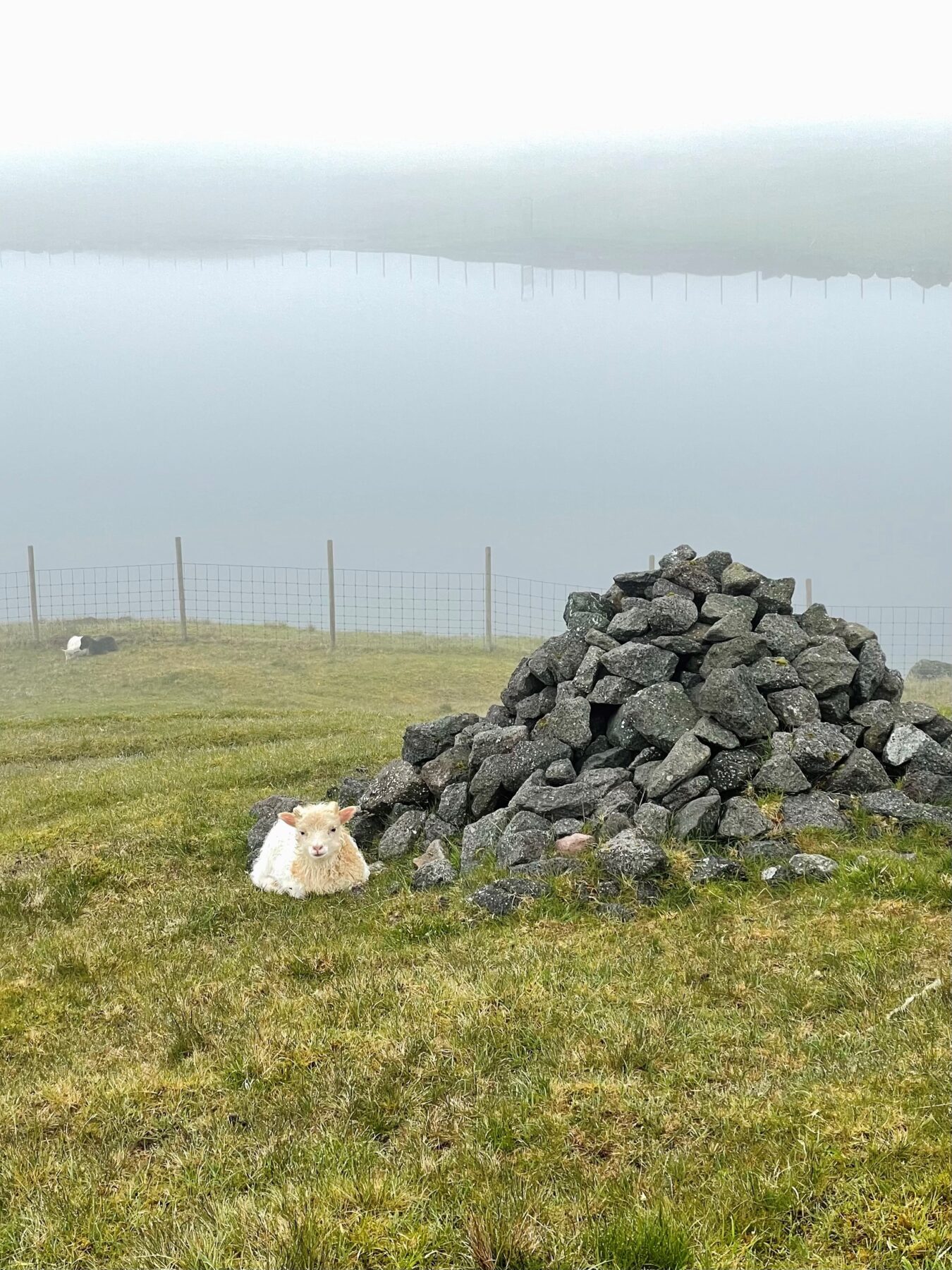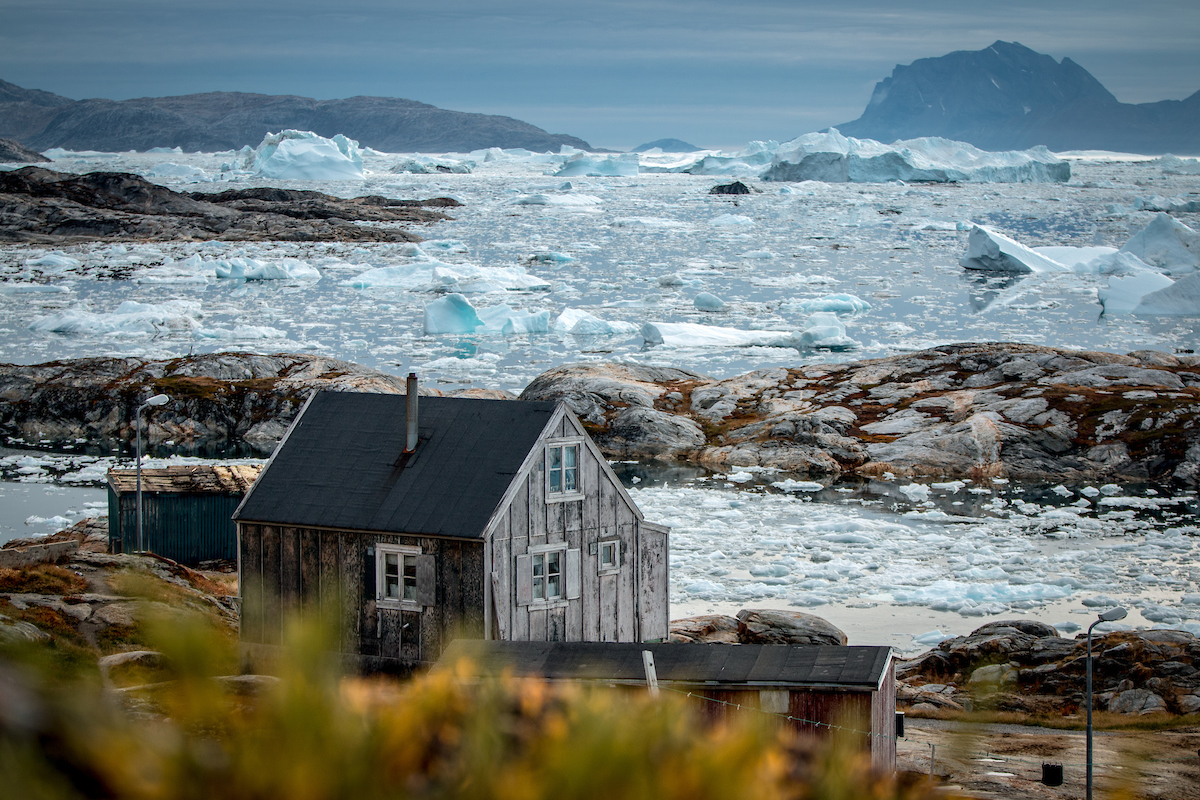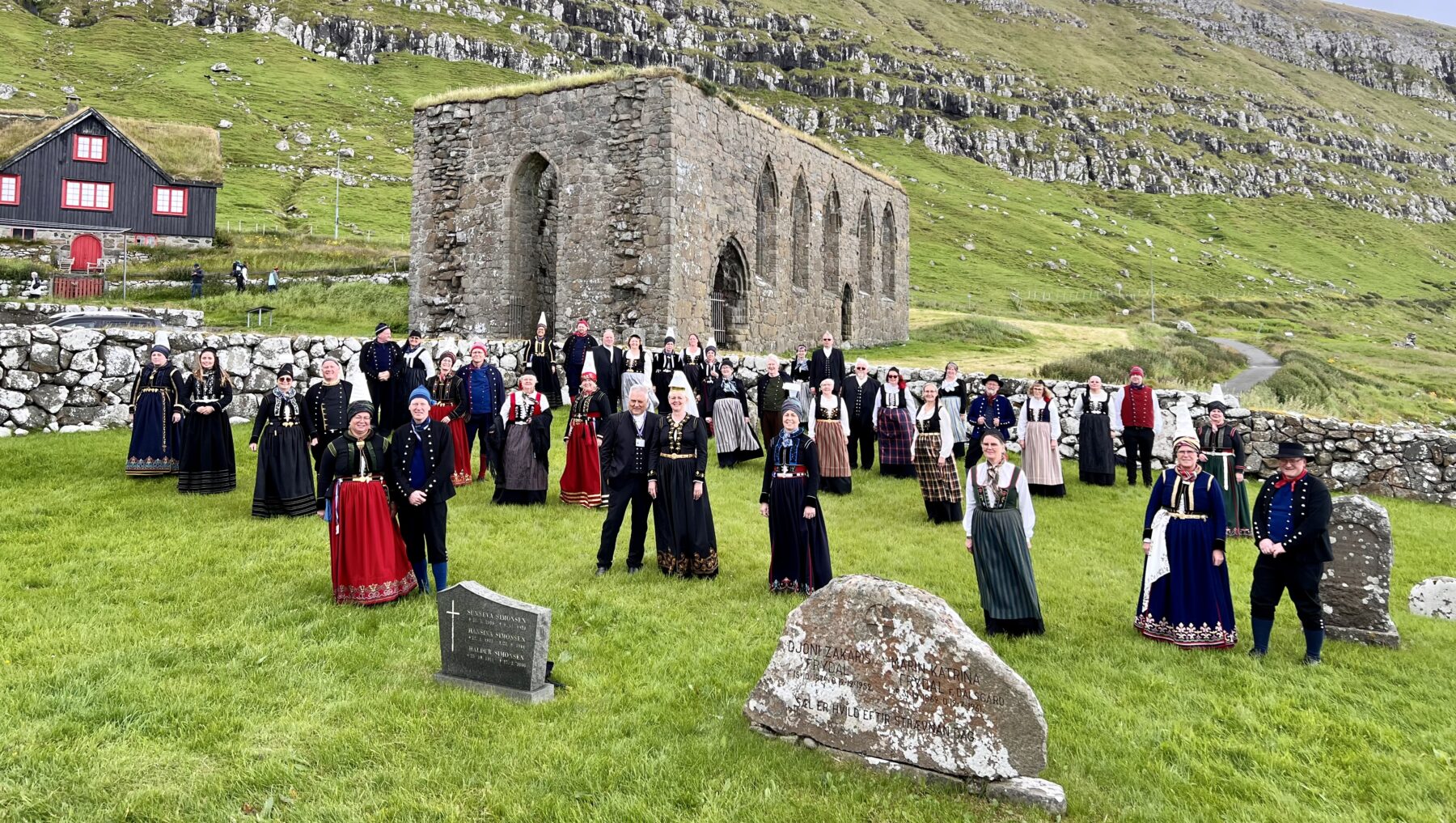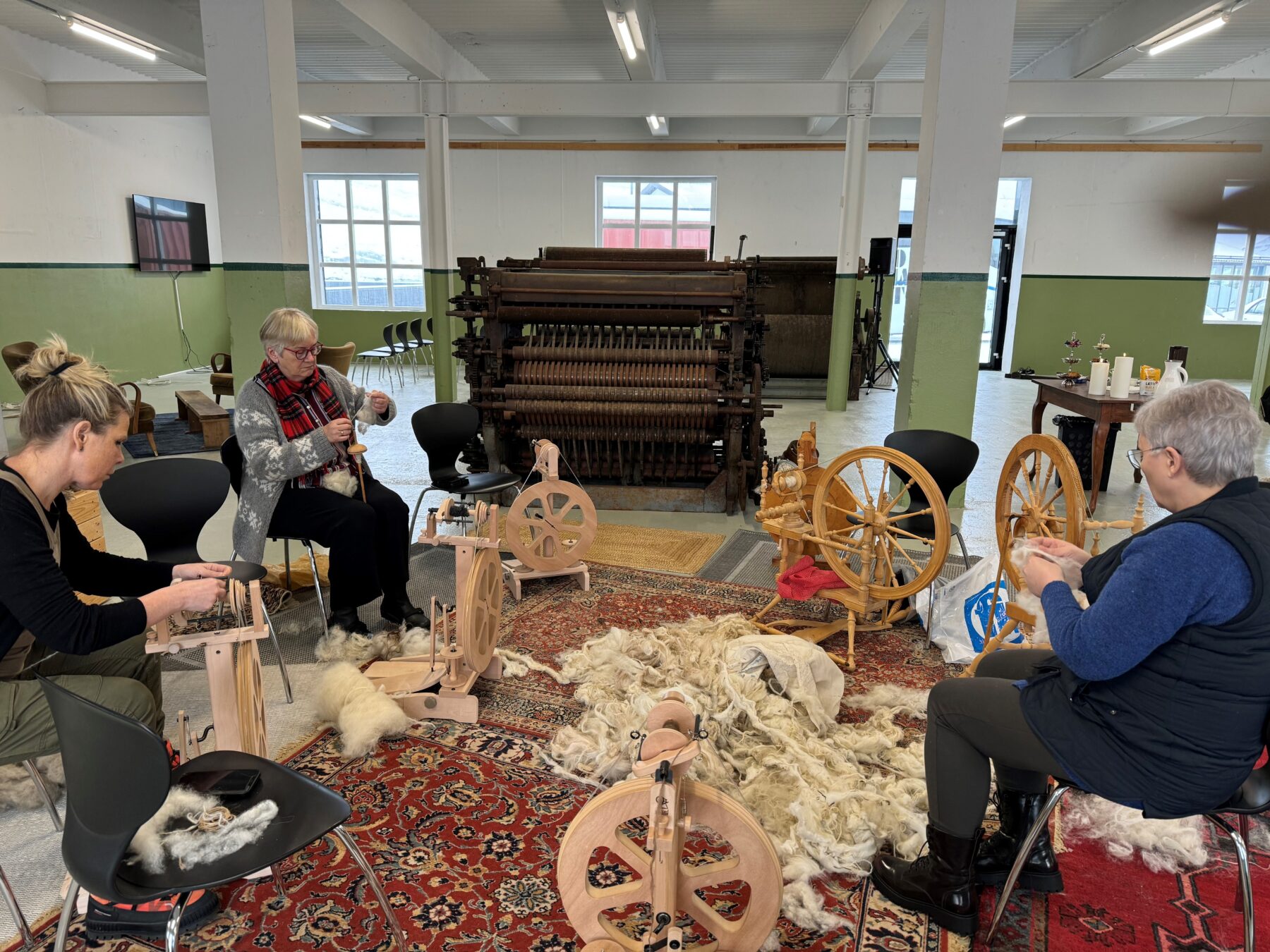
NATA Supports Micro-Spinning Mill in the Faroe Islands
Below is an explanation from the board of the interest group Spinnaríið (The Spinning Mill) about their efforts to establish a micro-spinning mill in Klaksvík, Faroe Islands.
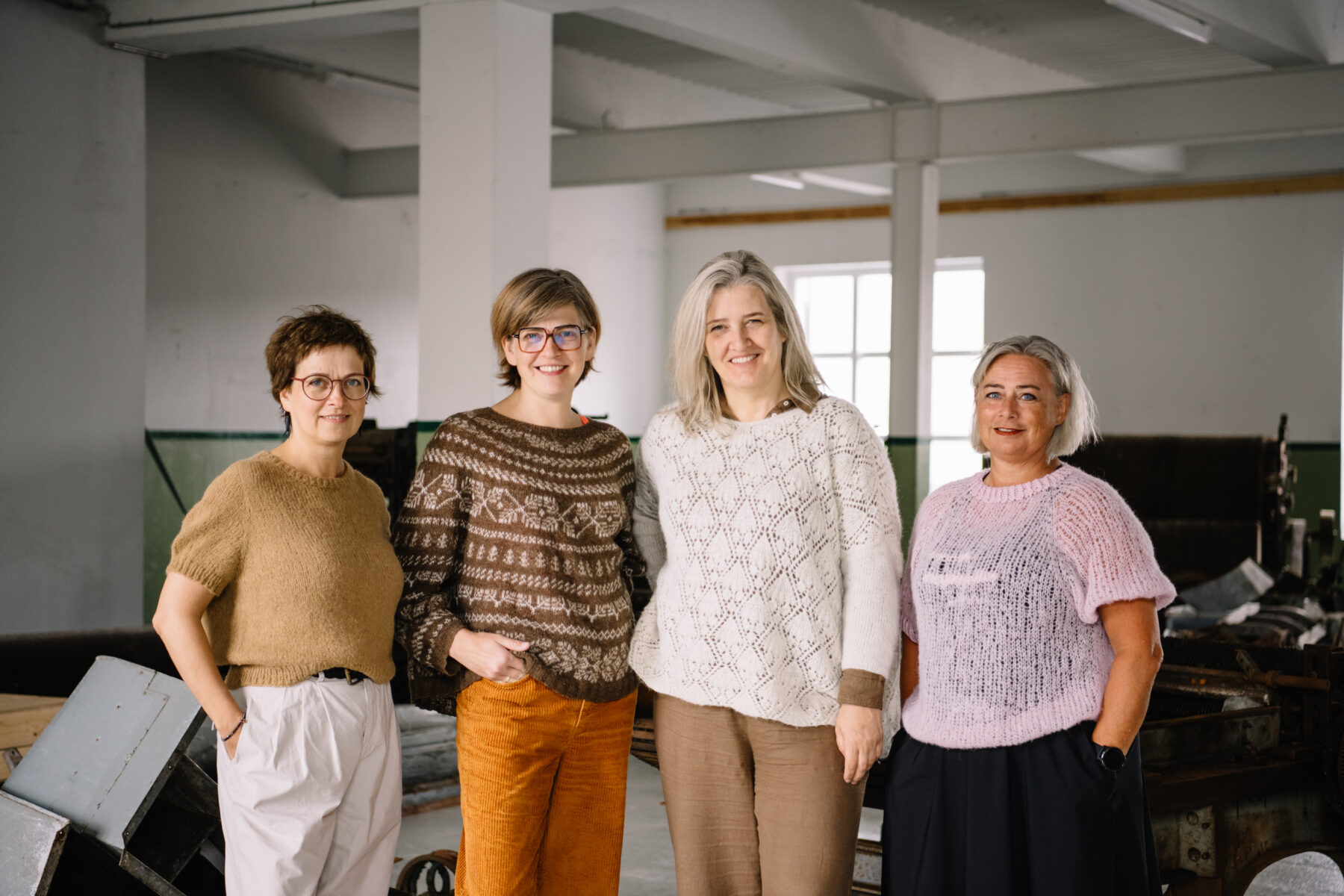
Photo: Spinnaríið
The interest group Spinnaríið was founded in September 2022 with the purpose of creating a micro-spinning mill. The mill will spin Faroese wool, generate interest, knowledge and debate about Faroese wool, and establish new connections and development opportunities between Faroese farmers and designers.
Spinnaríið has a long-term lease with Klaksvík municipality for the first floor of a large building originally built for spinning operations (it was home to an active spinning mill from 1944 to 1966). The renovated building offers a lot of space for spinning wool, as well as workshops, courses, a café, seminars, lectures, and exhibitions. These facilities aim to help designers and artists explore new possibilities for Faroese wool.
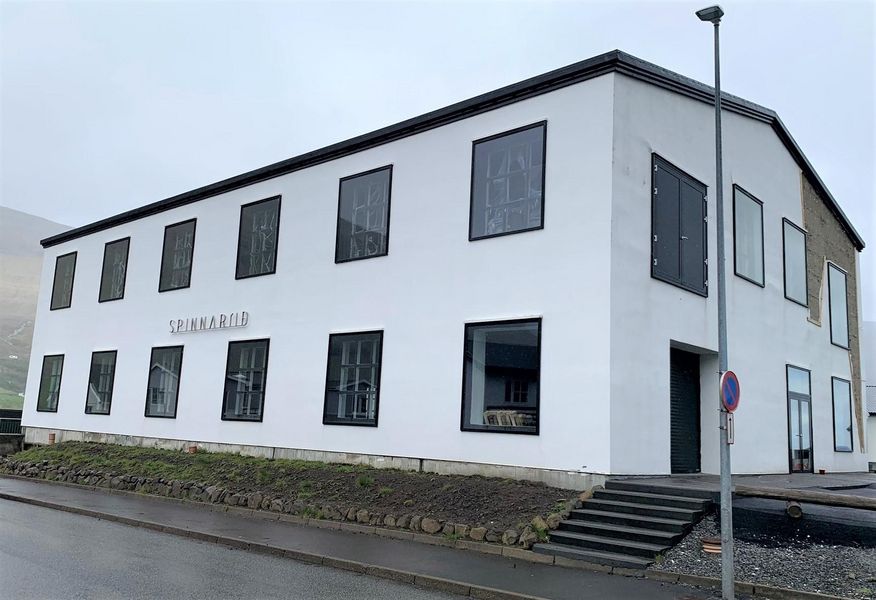
Photo: Spinnaríið
Although the project has not yet achieved full-scale production due to incomplete funding for a complete set of machinery, progress has been made. Initial machines have been purchased, wool collection is underway in collaboration with local farmers, and preparations—including washing, drying, and processing the wool—are in progress.
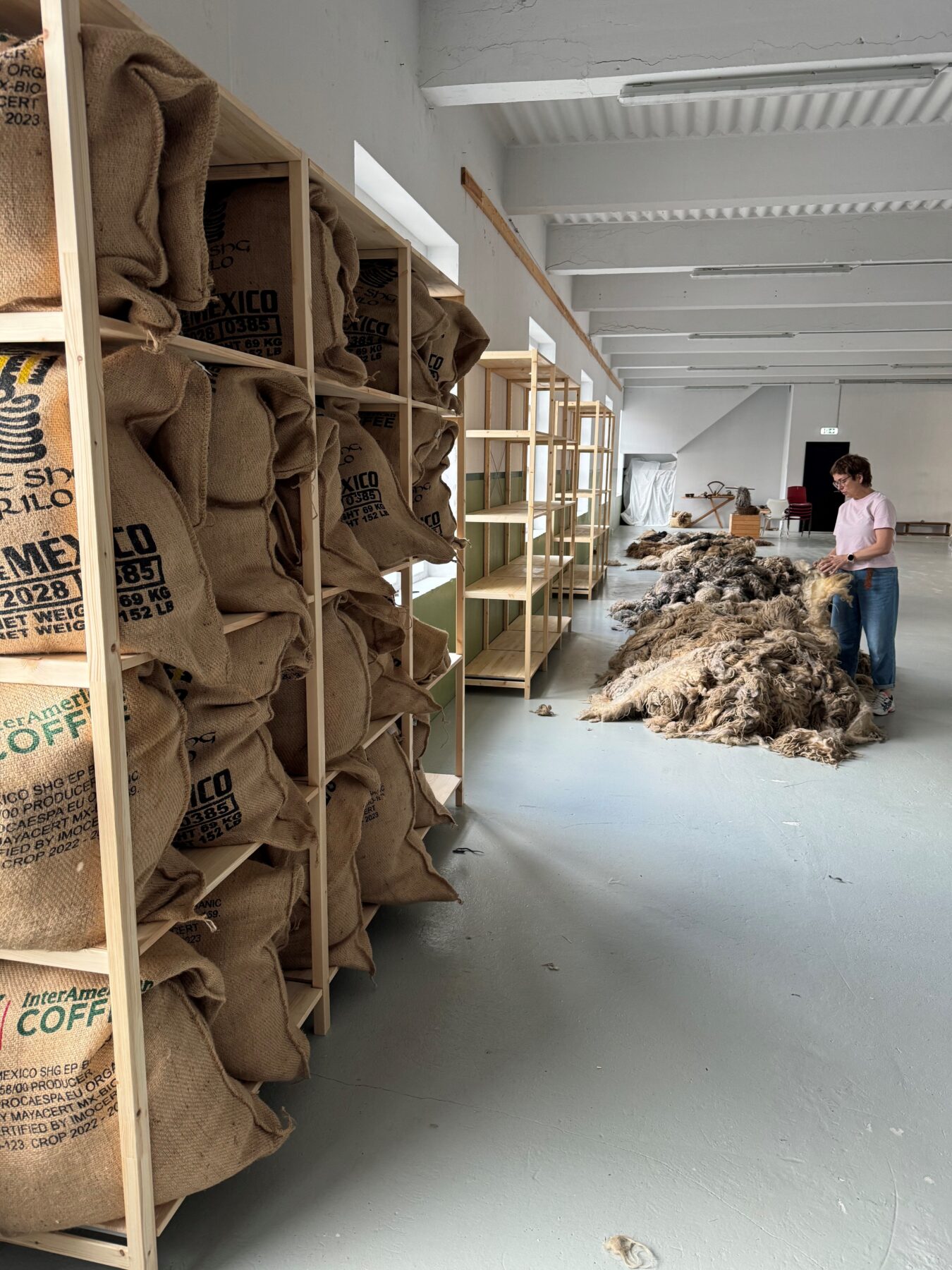
Photo: Spinnaríið
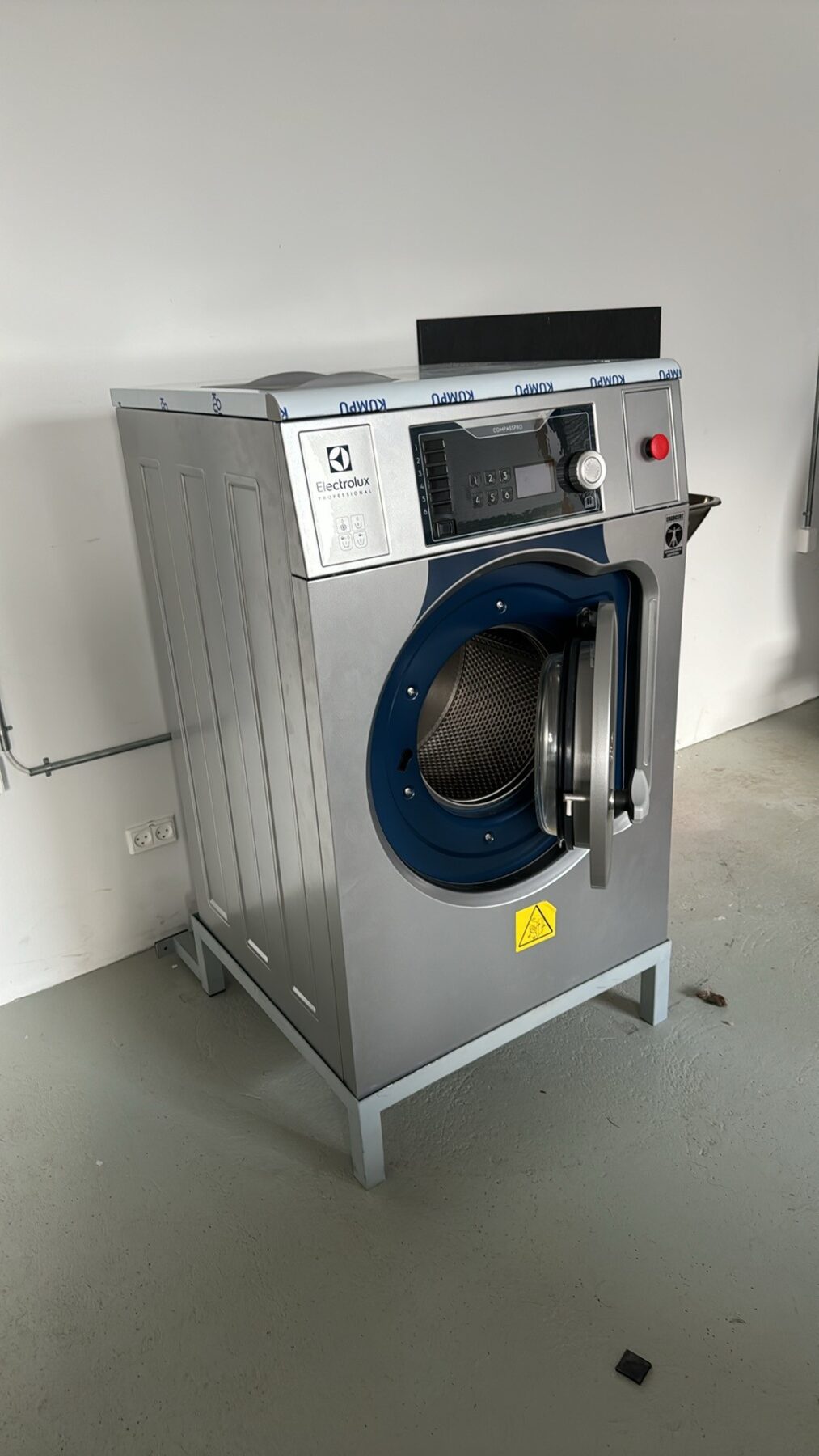
Photo: Spinnaríið
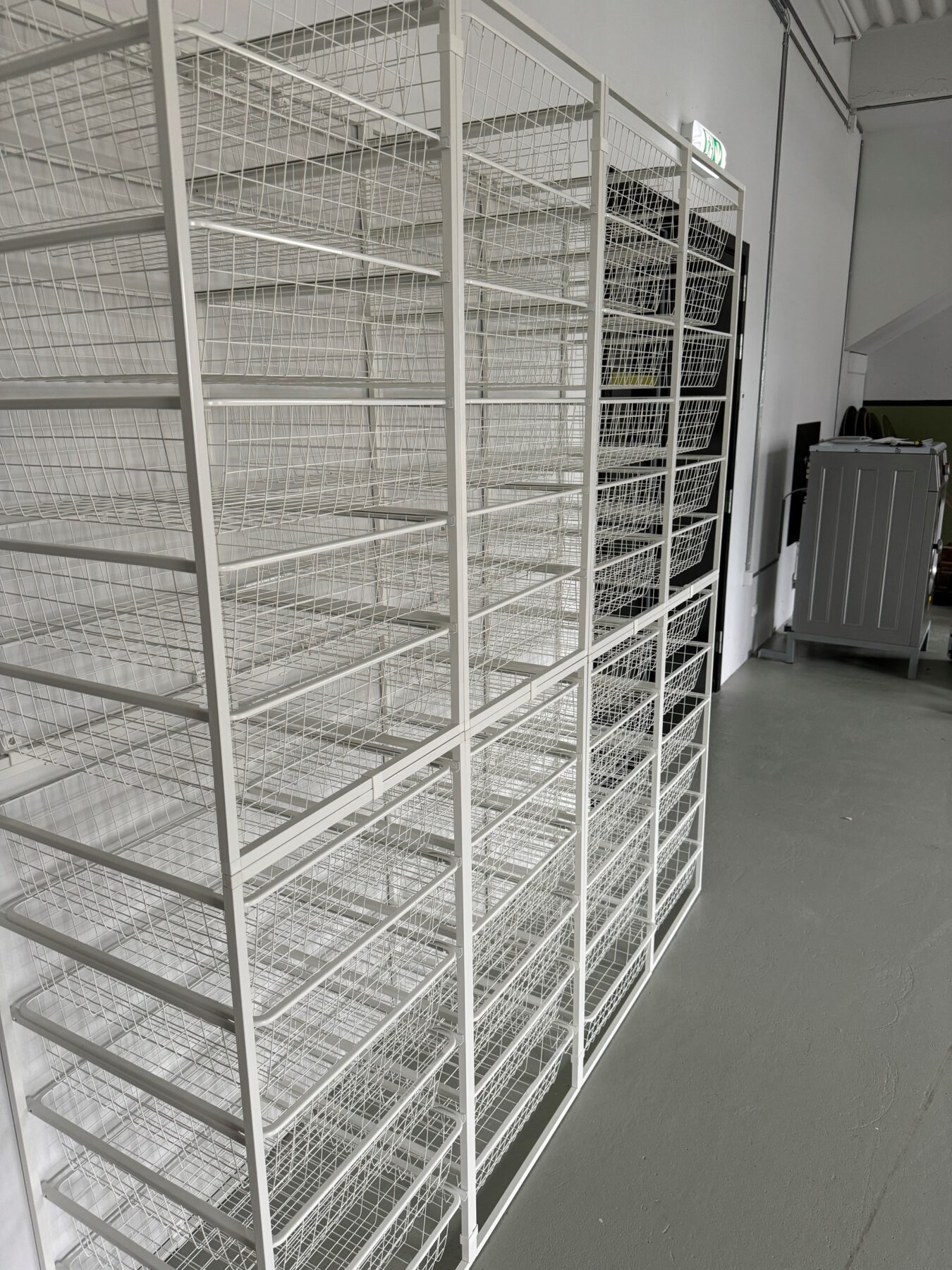
Photo: Spinnaríið
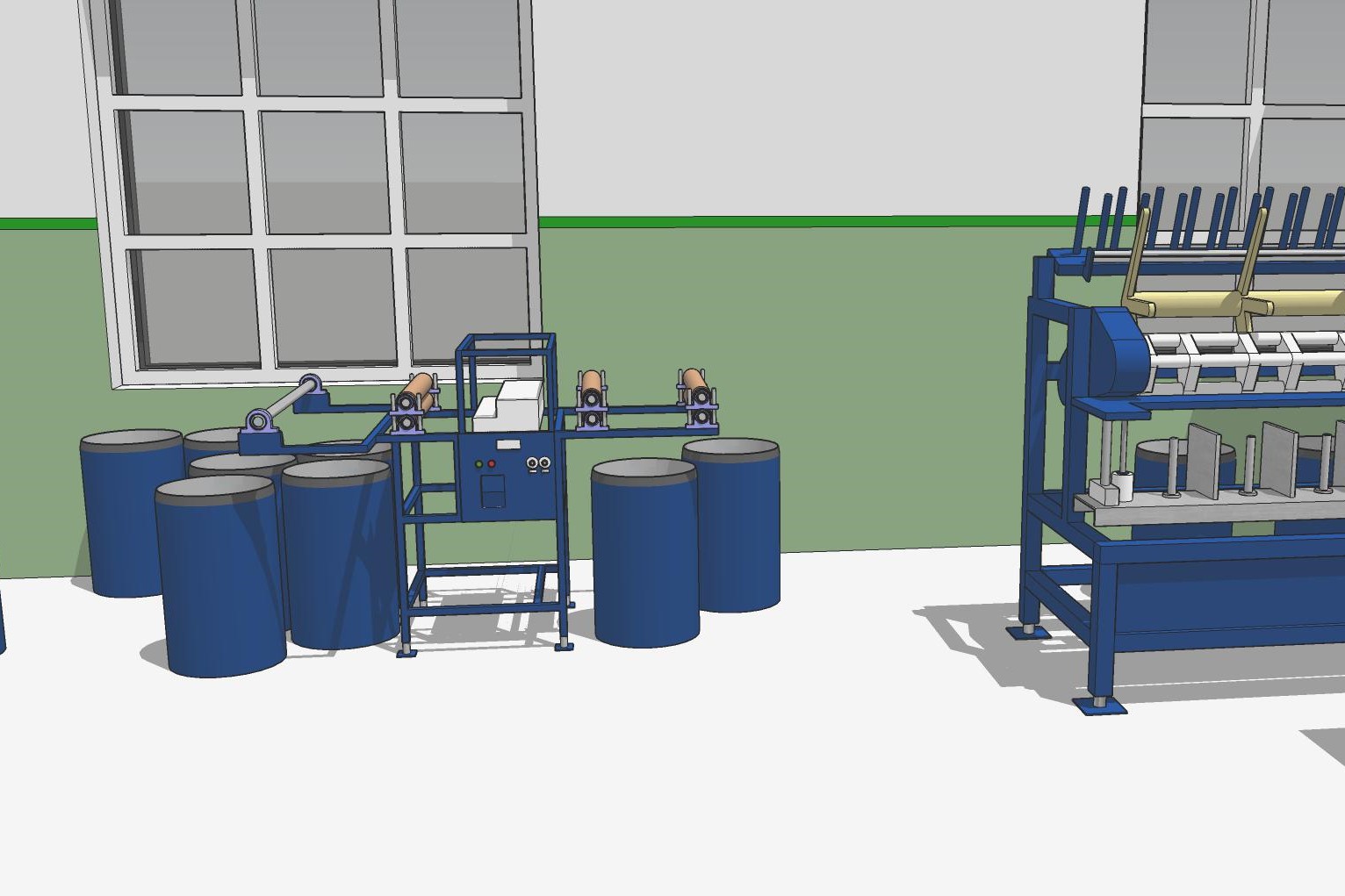
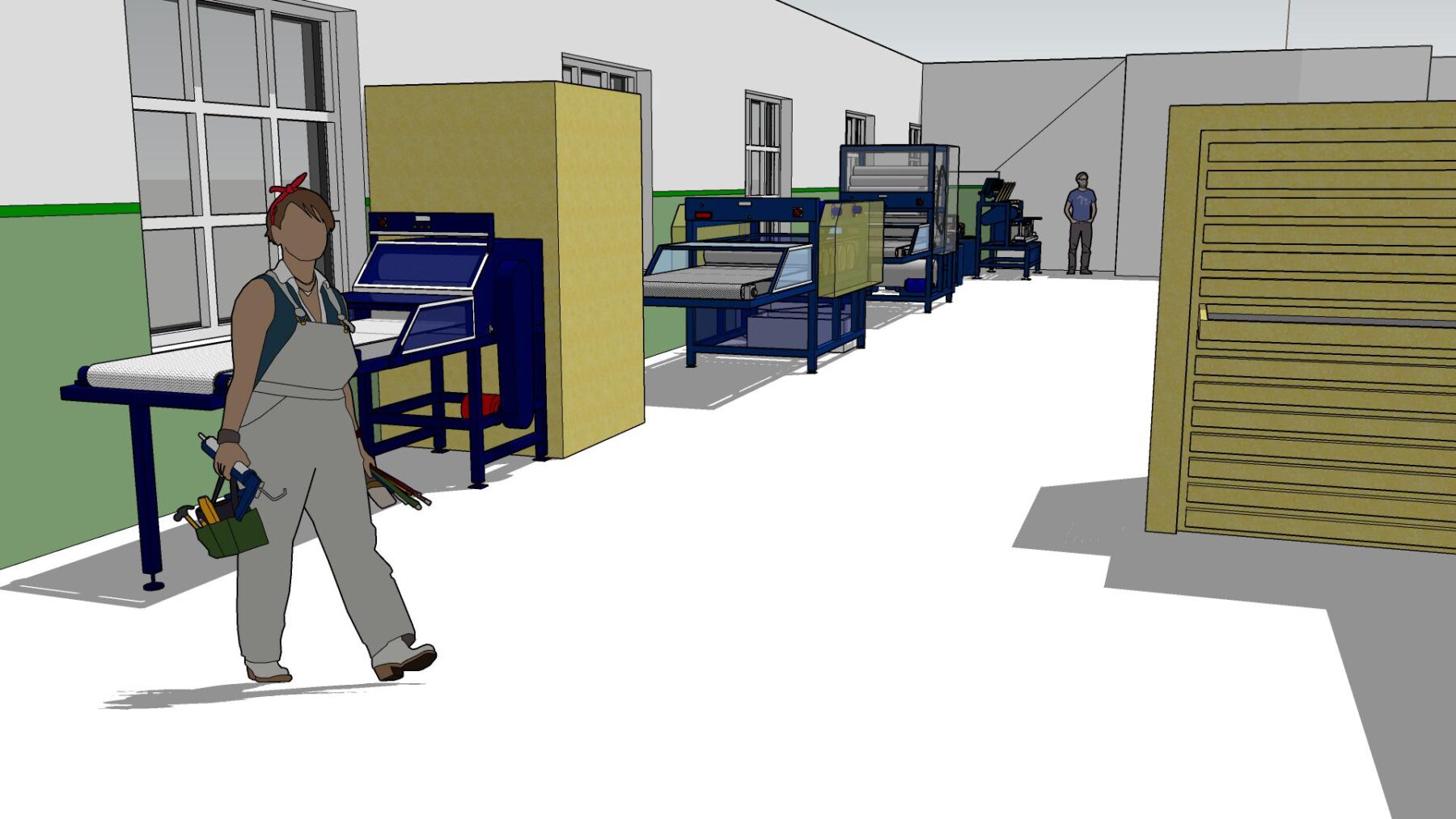
Photo: Spinnaríið
The facilities have been equipped for both teaching and production activities. Workshop tools, such as carding machines and spinning wheels, have been acquired, and collaboration with the local evening school has enabled the launch of educational courses.
Current courses are tailored for Faroese residents and will continue throughout the winter. The insights gained from these courses will help enhance future workshops and wool education offerings. The long-term goal is to attract international tourists, showcasing the history of Faroese wool production and its modern applications.
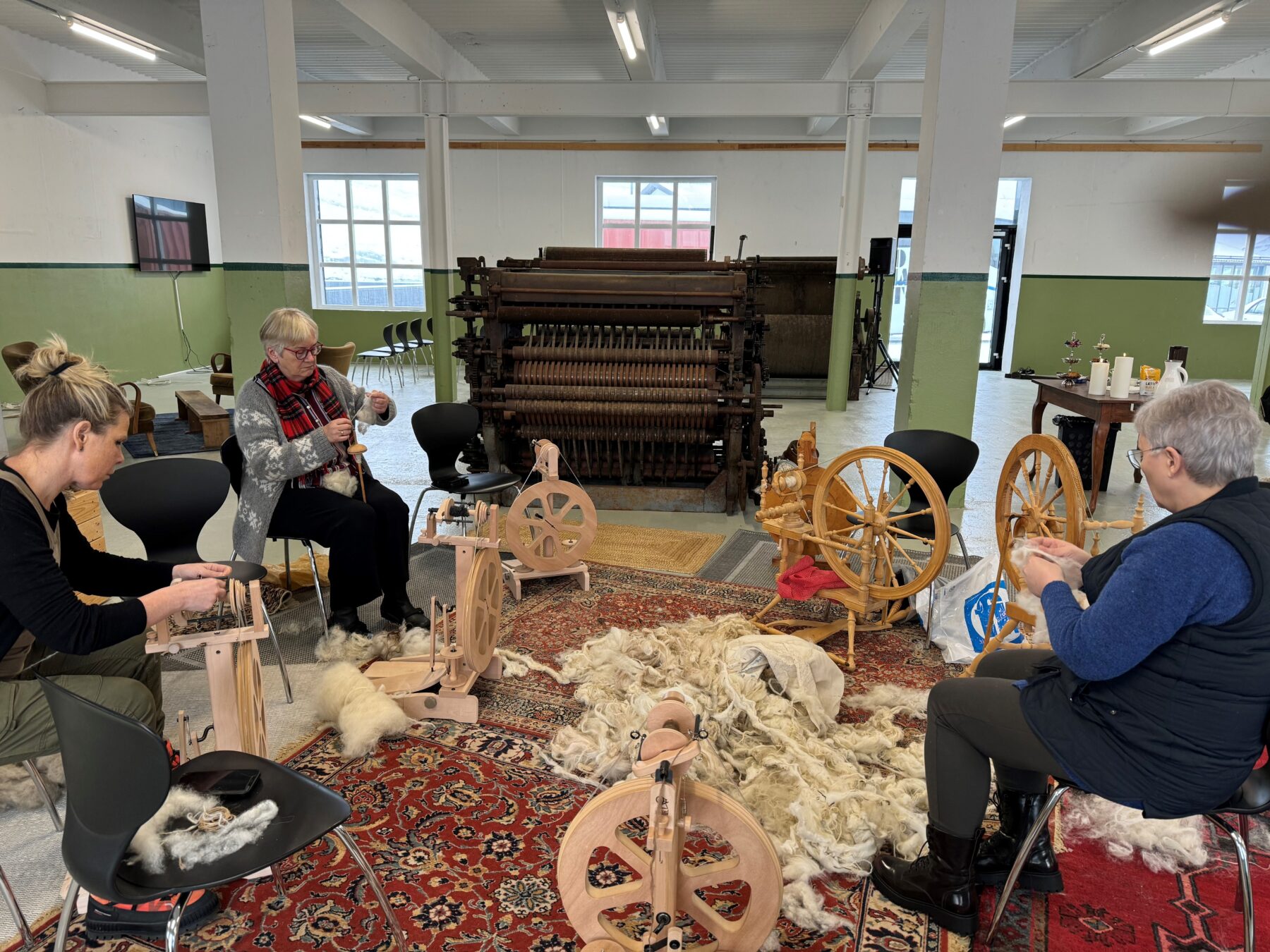
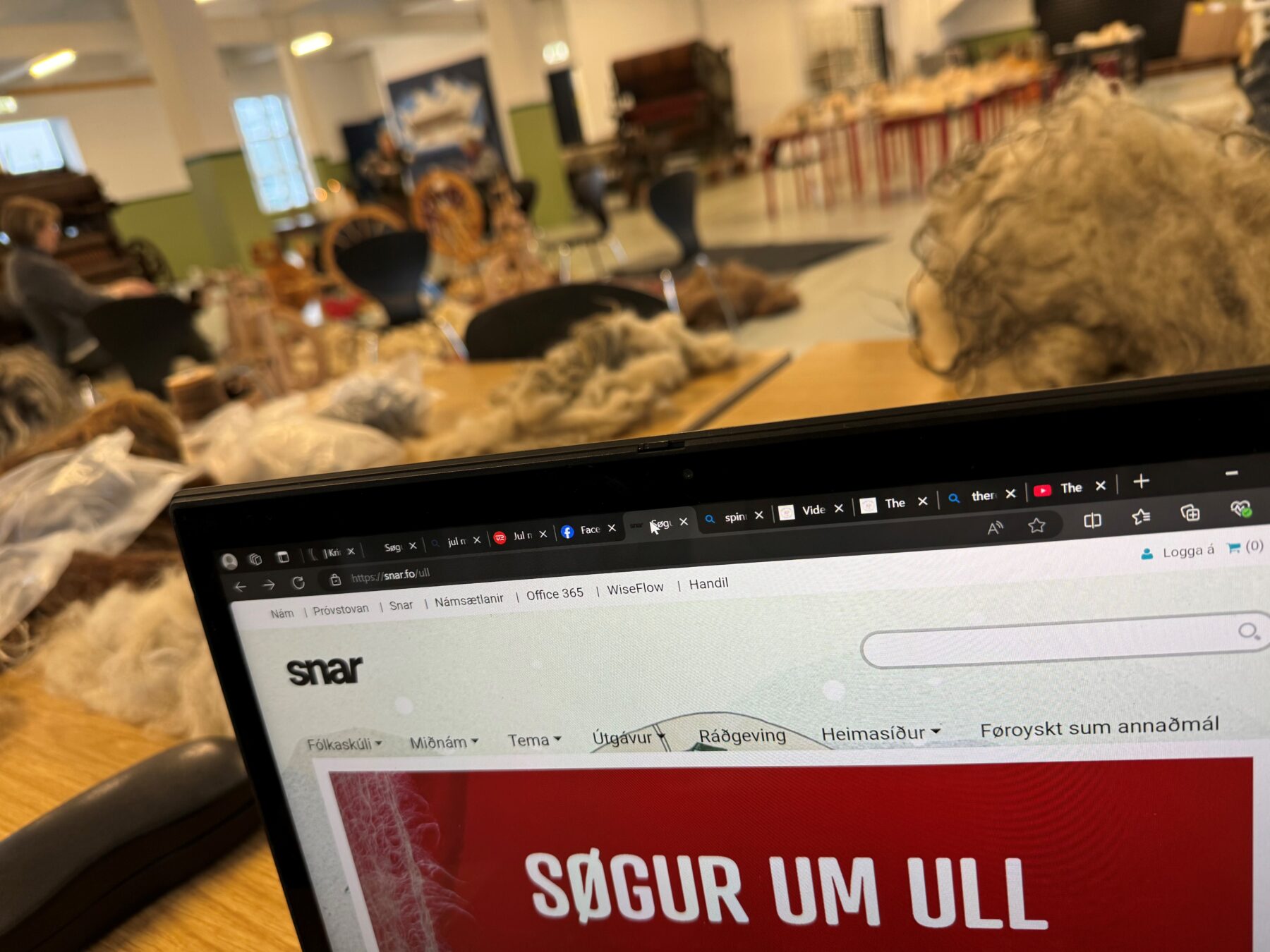
Photos: Spinnaríið
The premises also house historic carding machines from a local spinning mill that operated from 1966 to 2000, along with traditional Faroese wool-processing tools that illustrate pre-industrial techniques.
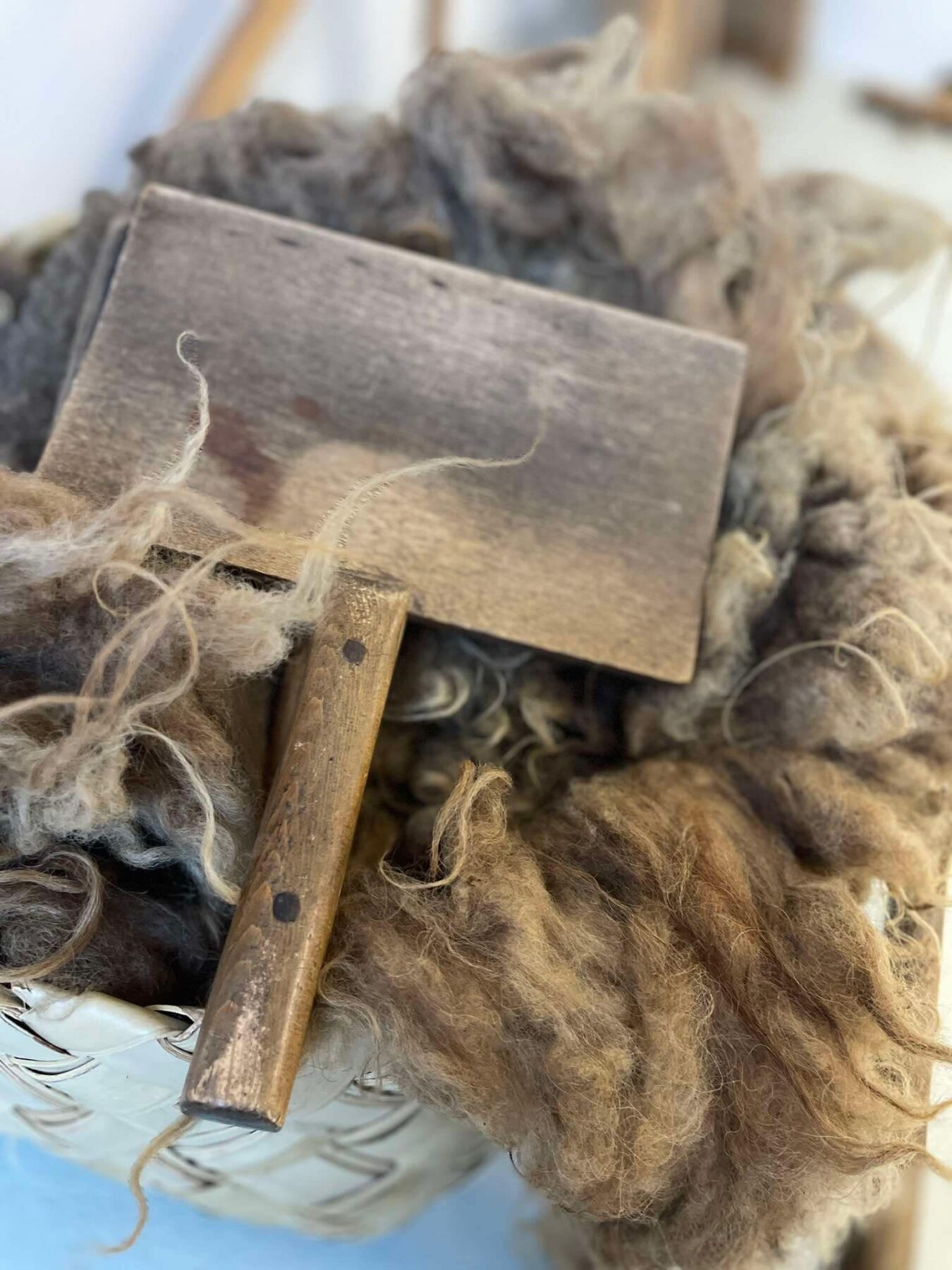
Photo: Spinnaríið
The machines already acquired—such as a drum carder, washing machine, and picker—are foundational for a micro-spinning mill and support future expansion toward full production. These machines are also currently used for workshops and small-scale production.
Although the original plan to start full production by 2024 was not realized, significant milestones have been achieved. The facilities have been prepared for both production and workshops, initial machines (from Belfast Mini Mills and local Faroese suppliers) have been purchased, regular courses are underway, and several successful events highlighting wool and Faroese creativity have been held. The first phase of production has also begun.
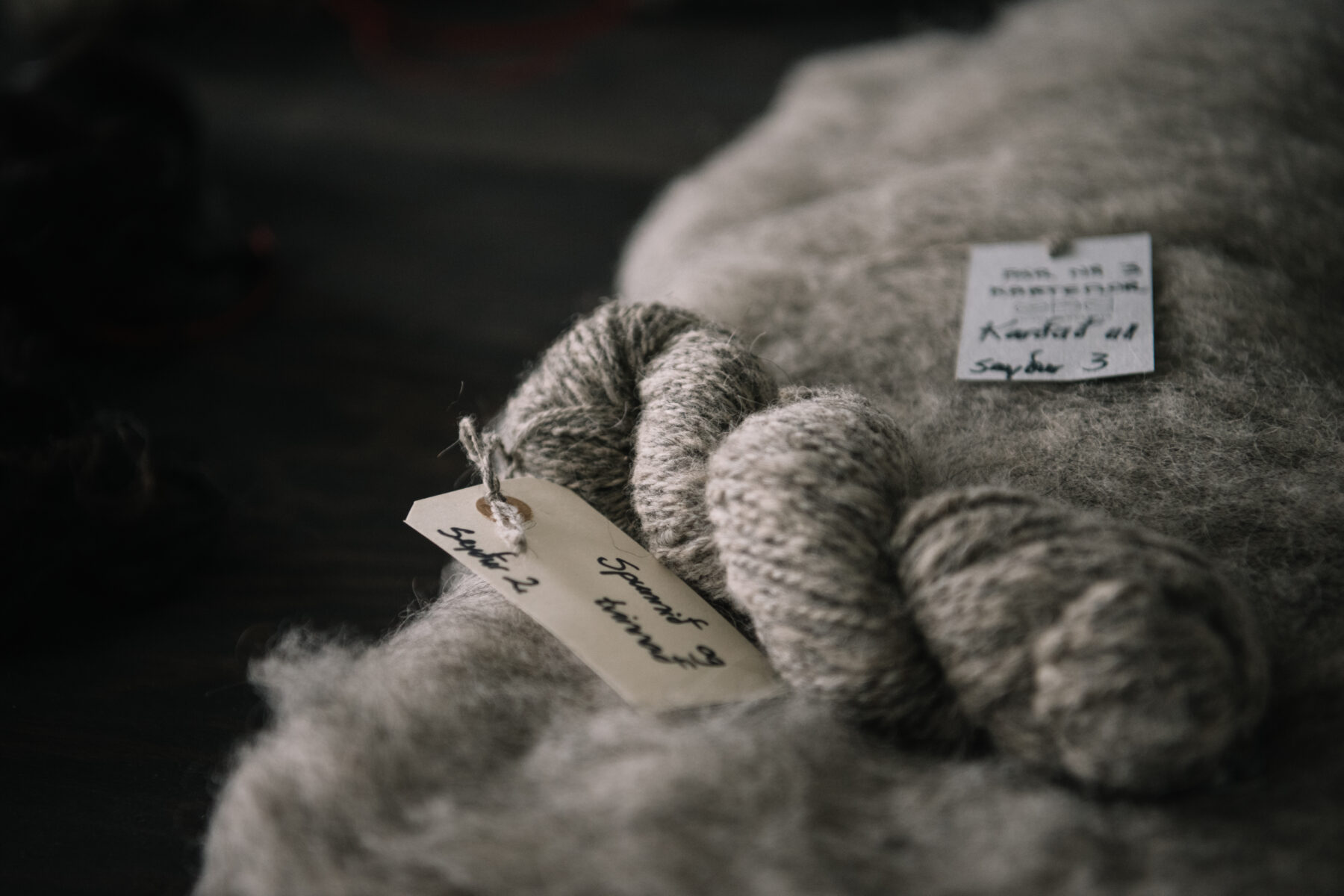
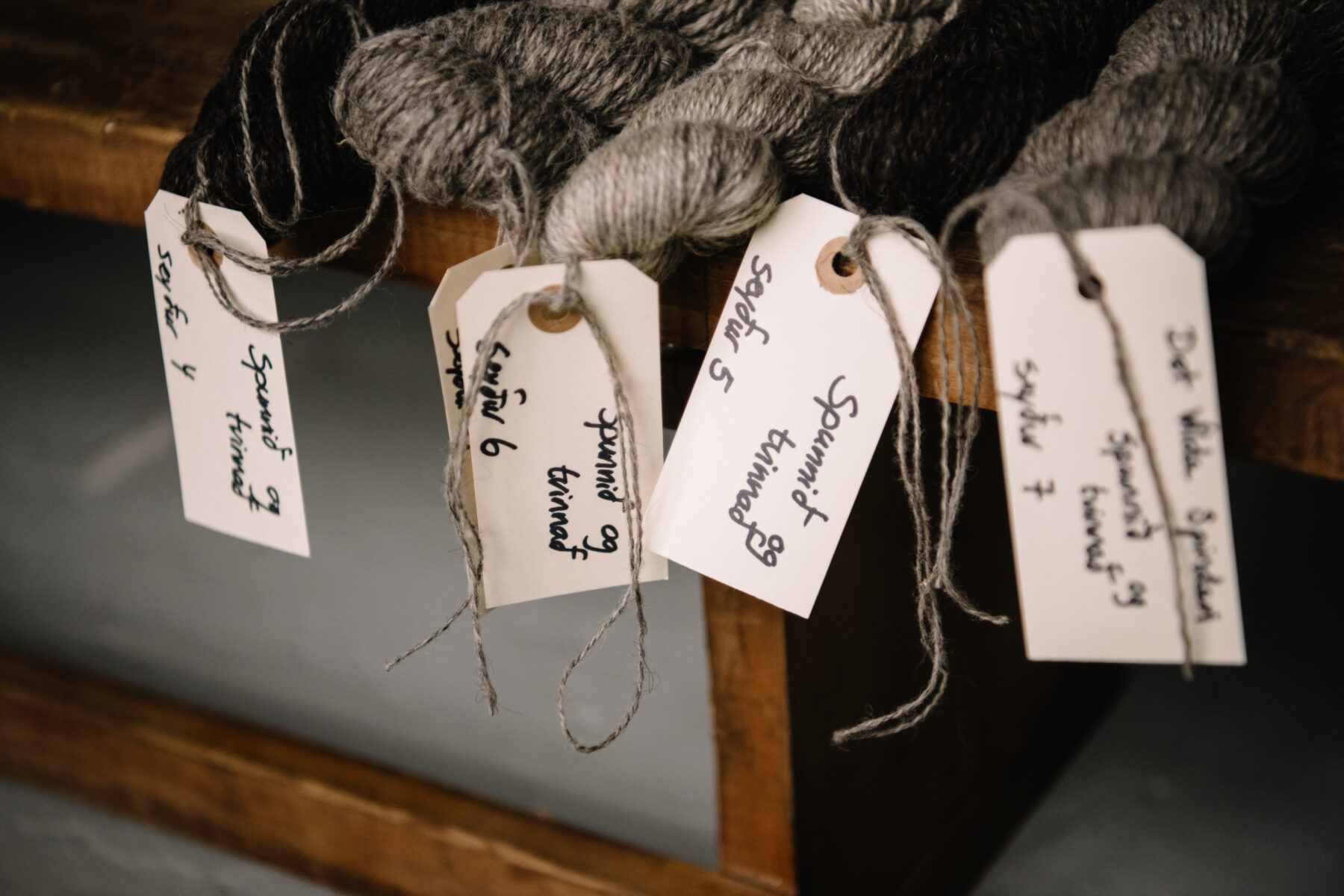
Photo: Spinnaríið
While full funding is still being sought, the project has received widespread positive feedback. Collaboration has been established with farmers, educators, designers, artists, entrepreneurs, and both local and national tourism organizations.
Visits to similar spinning mills in Denmark (Det Vilde Spinderi) and Iceland (Gilhagi) have been incredibly valuable. Gilhagi, a small micro-spinning mill in northeastern Iceland, processes yarn from its own farm and neighboring farms. They use machines from the same supplier and emphasize sustainability, local values, and environmentally friendly practices—all of which align with Spinnaríið’s mission. Observing their operations and learning from their experiences has been highly inspiring. Strengthening and expanding Nordic partnerships presents significant opportunities, as shared challenges and goals create room for mutual learning and innovation.
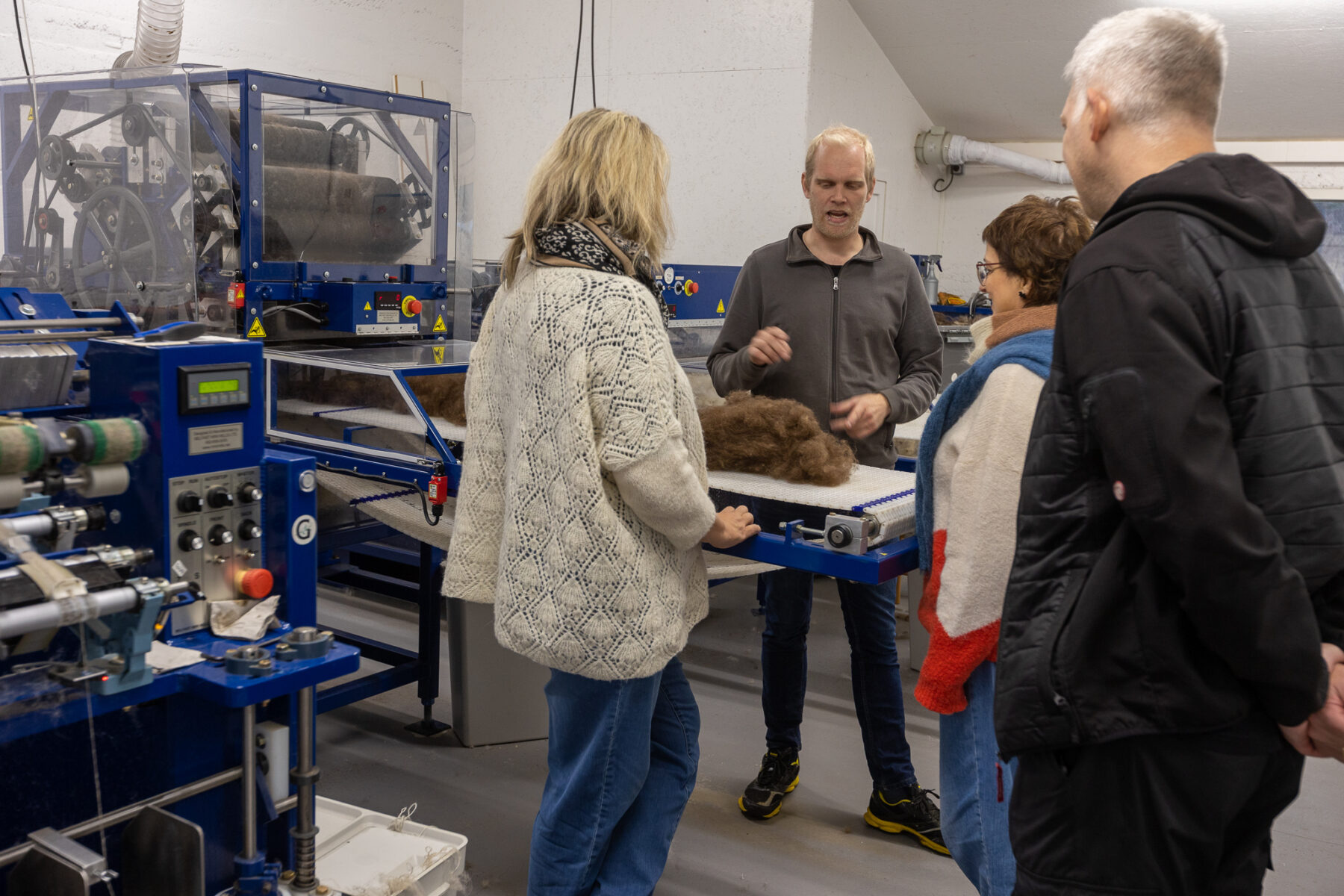
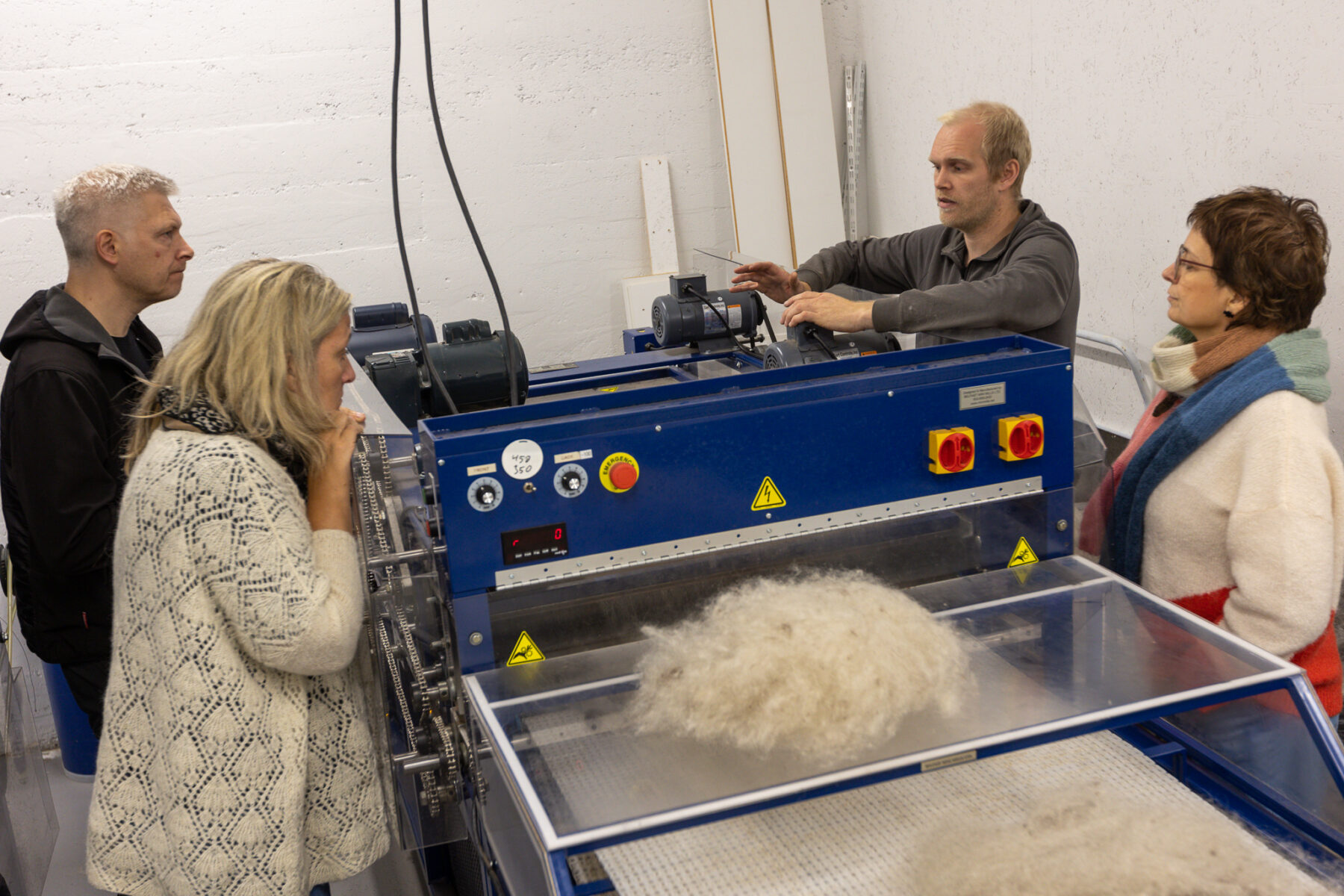
Photos: Spinnaríið
A strong Faroese network of wool enthusiasts and producers has also been established. Local farmers have shown great interest in collaborating, appreciating the opportunity to process their wool locally with higher traceability and reduced environmental impact.
Events hosted by Spinnaríið have been well-attended, and feedback has been overwhelmingly positive. The facilities have proven highly functional, and the combination of historical machinery and exhibitions featuring innovative designs has generated significant interest.
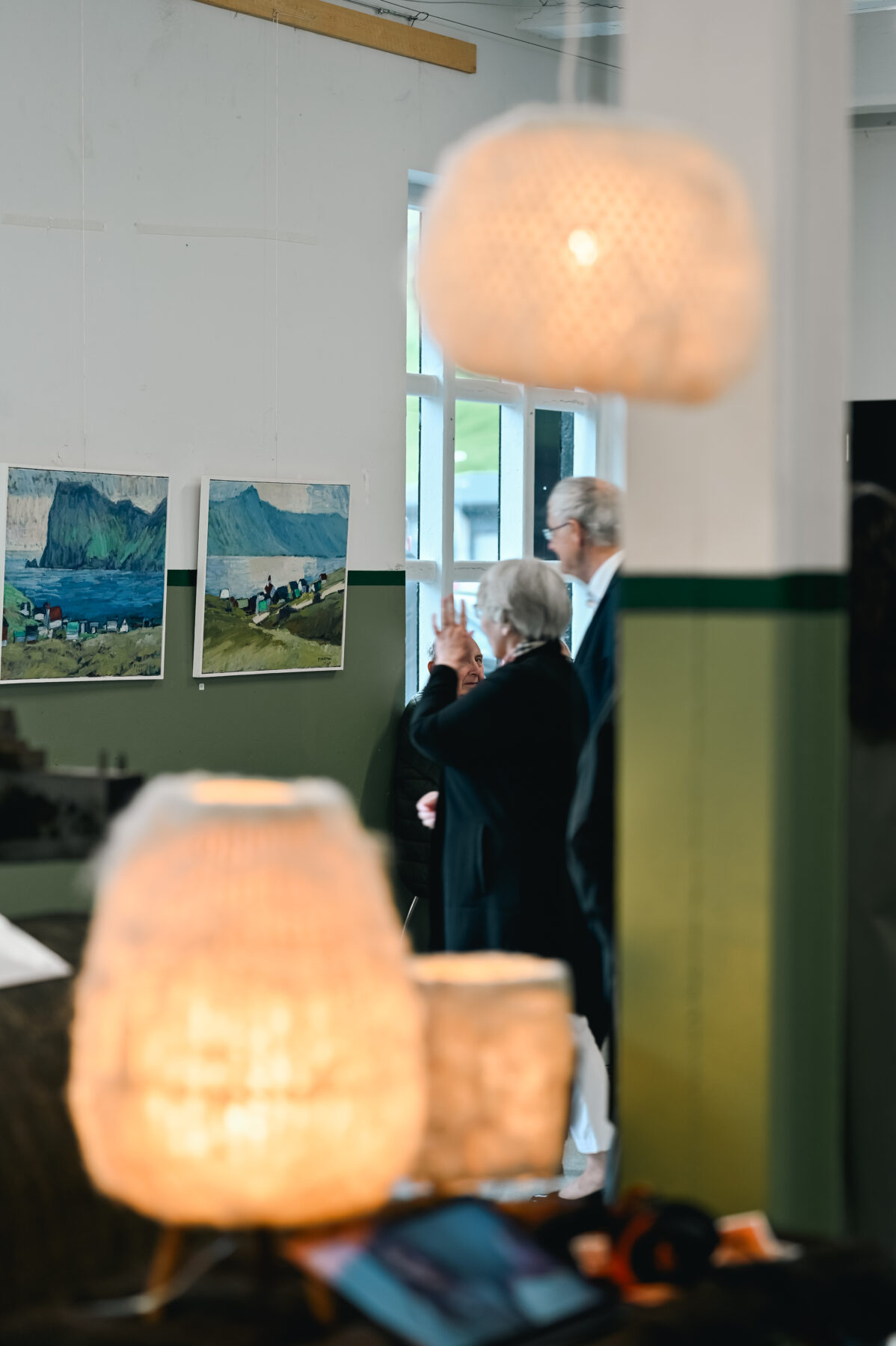
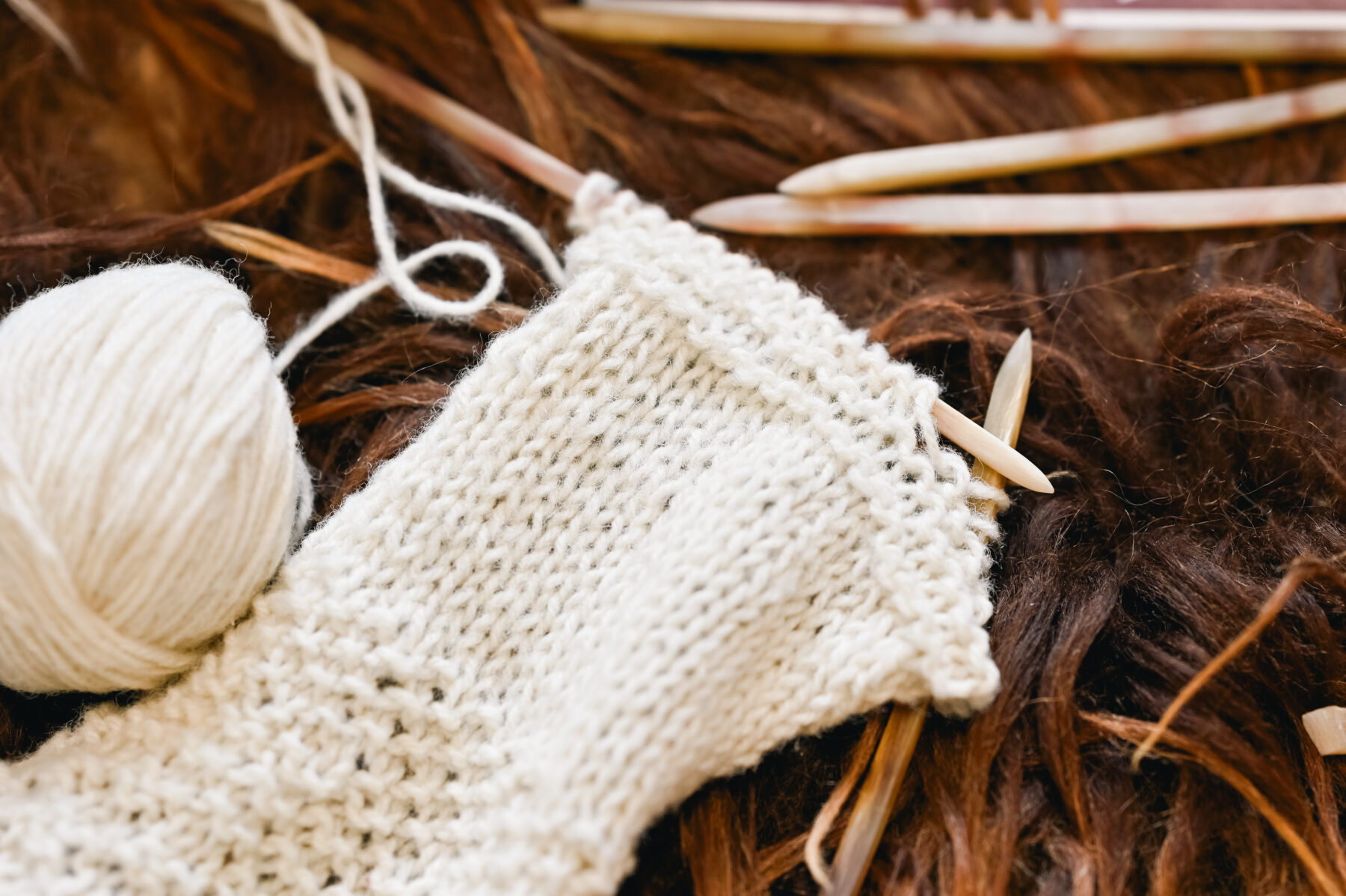
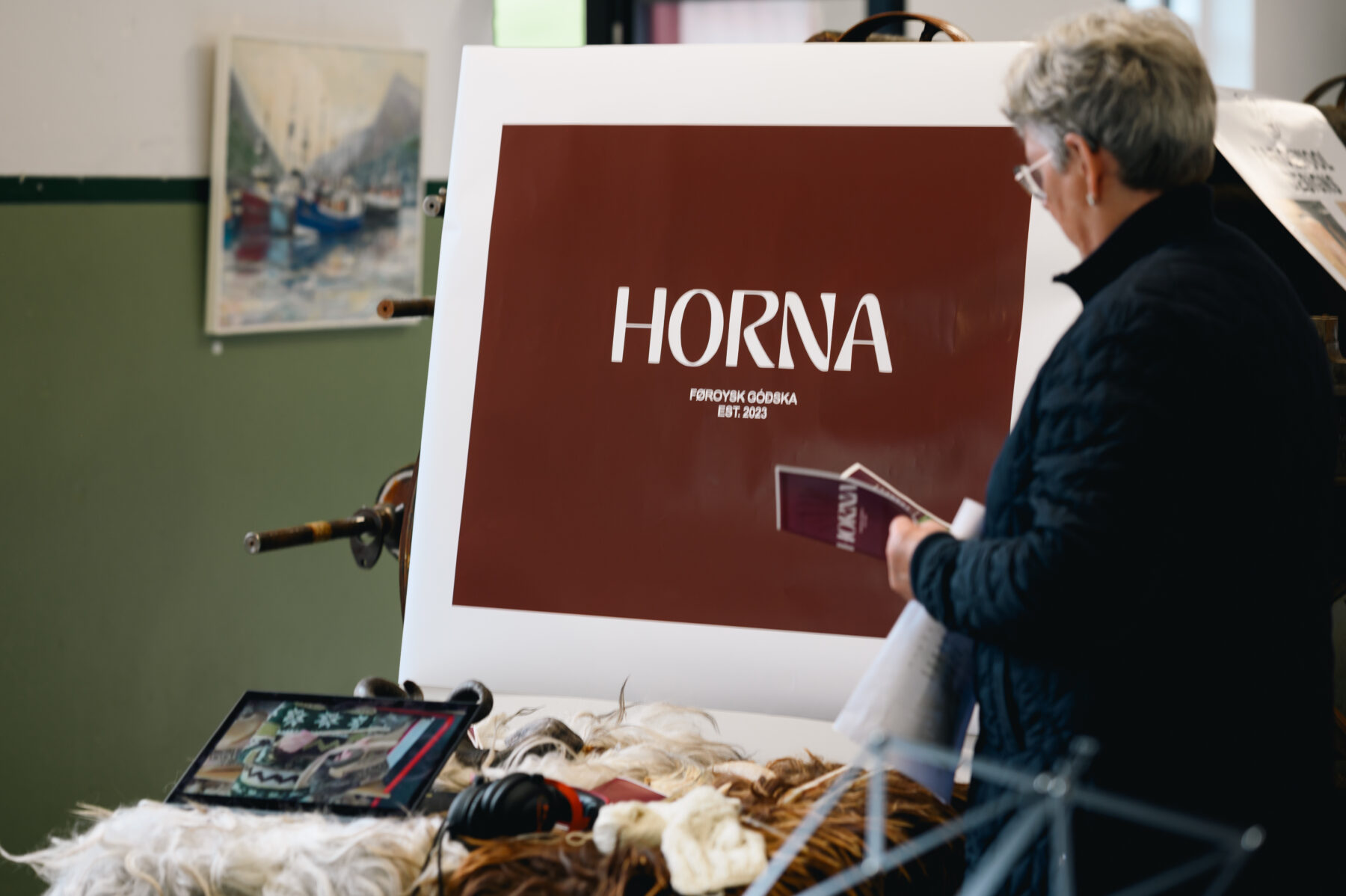
Photos: Spinnaríið
